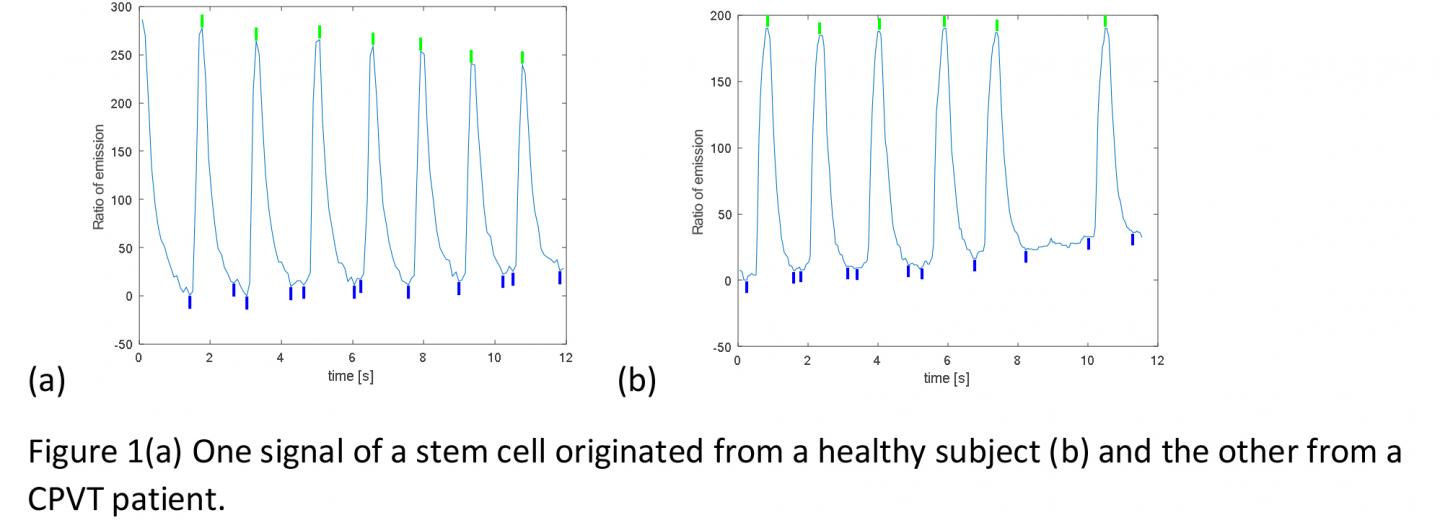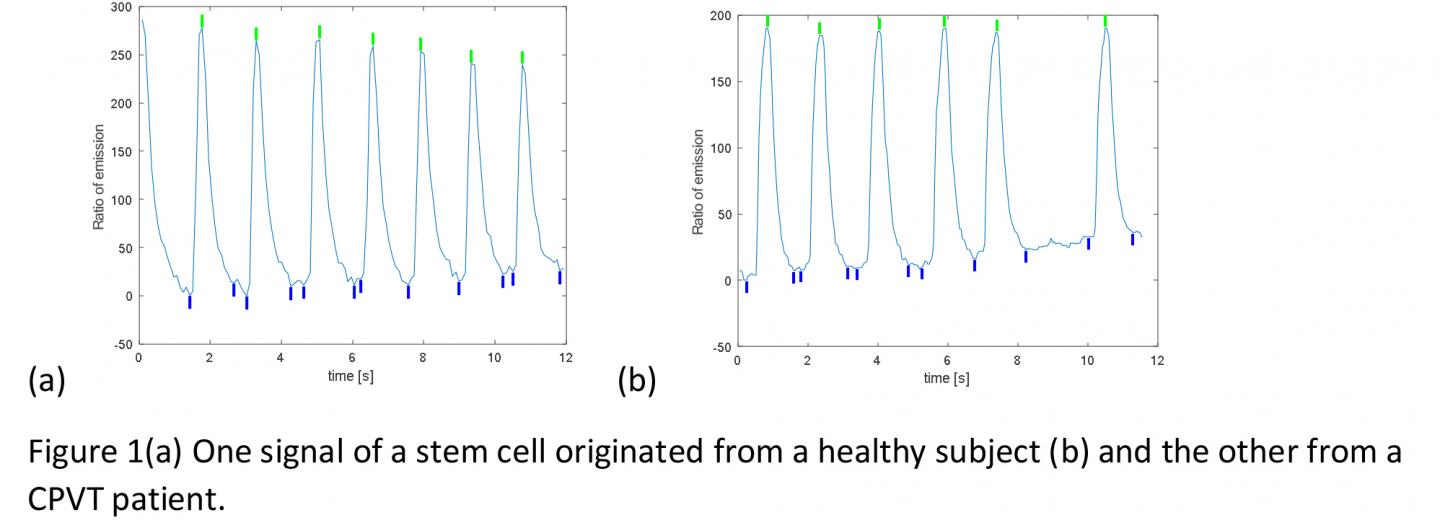
Credit: Authors
A new study by Professors Martti Juhola and Katriina Aalto-Setälä of the University of Tampere in Finland demonstrates that with the use of artificial intelligence and machine learning, it is possible not only to accurately sort sick cardiac cell cultures from healthy ones, but also to differentiate between genetic cardiac diseases.
iPSC-derived cardiomyocytes can be derived from a blood sample or a skin biopsy. These cells are currently used to understand the pathophysiology of different diseases and to identify new potential drugs for various diseases.
Machine learning and artificial intelligence have greatly improved in recent years. Scientists at the University of Tampere have now combined stem cell technology and artificial intelligence to study beating cardiomyocytes in cell cultures. The beating behavior of the cells was analyzed using calcium signals. Calcium is essential for cardiomyocytes to beat, and the beating can be monitored by using fluorescent labels.
In the study, the cardiomyocytes were derived either from patients with a genetic arrhythmia (CPVT), long QT syndrome (LQTS), or hypertrophic cardiomyopathy (HCM), or from healthy individuals. The beatings of single cardiomyocytes were recorded and the analysis software was taught what diseases they represented. The program then learned to separate the different groups and to identify specific features in the beating behavior of each cell.
The software is now capable of identifying whether signals are from cells derived from an individual carrying a disease-causing mutation or from a healthy individual. This is very impressive, but the biggest surprise was that the program could also tell the difference between the diseases.
This important observation reveals that iPSC-derived cells and artificial intelligence have the potential to be used in diagnostics. Currently, genetic diseases are mainly diagnosed by DNA analysis, but in many cases the results do not reveal whether the DNA alteration is the true cause of the disease or whether it is just an innocent variation. This new finding demonstrates that uniting artificial intelligence and machine learning can help in such situations. The combination of technologies could also be used in cases of unspecific but severe cardiac findings to identify the specific disease causing the symptoms.
###
See the article in Scientific Reports: http://www.nature.com/articles/s41598-018-27695-5
Media Contact
Professor of computer science Martti Juhola
[email protected]
358-401-901-716
@UniTampere
http://www.uta.fi/
Original Source
http://www.uta.fi/en/news/story/diagnostics-genetic-cardiac-diseases-using-stem-cell-derived-cardiomyocytes





